What Is Competitive Gaming & Esports and Does It Count as a Real Sport?
The Rise of Competitive Gaming – From Arcades to Arenas
Skill, Strategy, and Sweat – Breaking Down the Athleticism of Esports
Defining Esports – More Than Just Playing Games
Esports, short for “electronic sports,” refers to organized, competitive video gaming where individuals or teams face off in popular titles like League of Legends, Counter-Strike, Dota 2, and Fortnite. These competitions range from small local tournaments to massive international events held in sold-out stadiums and streamed to millions online.
Unlike casual gaming, esports is structured around rules, rankings, and professional standards. Players train rigorously, often for 8–12 hours a day, refining reflexes, mastering game mechanics, and developing team coordination. The ecosystem includes coaches, analysts, physical therapists, and even psychologists—mirroring traditional sports organizations.
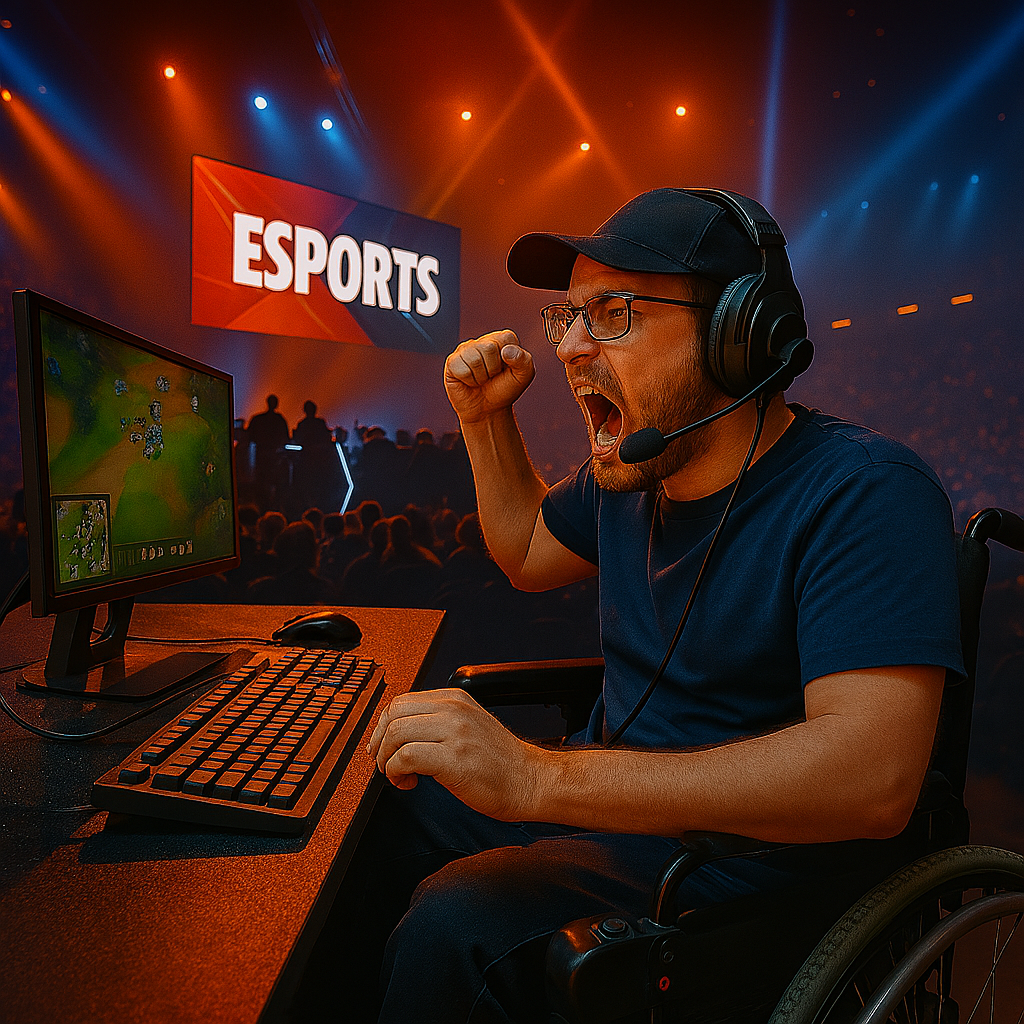
The Mental Game – Strategy, Pressure, and Precision
At the heart of esports lies an intense mental challenge.
Players must
- Process information in milliseconds
- Execute complex strategies
- Maintain peak performance under pressure
Studies have shown that elite esports athletes demonstrate cognitive abilities on par with top chess players and fighter pilots. Reaction times, decision-making speed, and memory recall are all pushed to the limit.
Physical Demands – Not Just Sitting in a Chair
While esports may not involve sprinting or jumping, the physical toll is real.
Professional players often suffer from
- Repetitive strain injuries
- Eye fatigue and posture-related issues
- Sleep disruption and stress
To combat this, many teams incorporate physical fitness routines, ergonomic setups, and wellness programs. Reaction drills, hand-eye coordination exercises, and cardiovascular training are becoming standard.
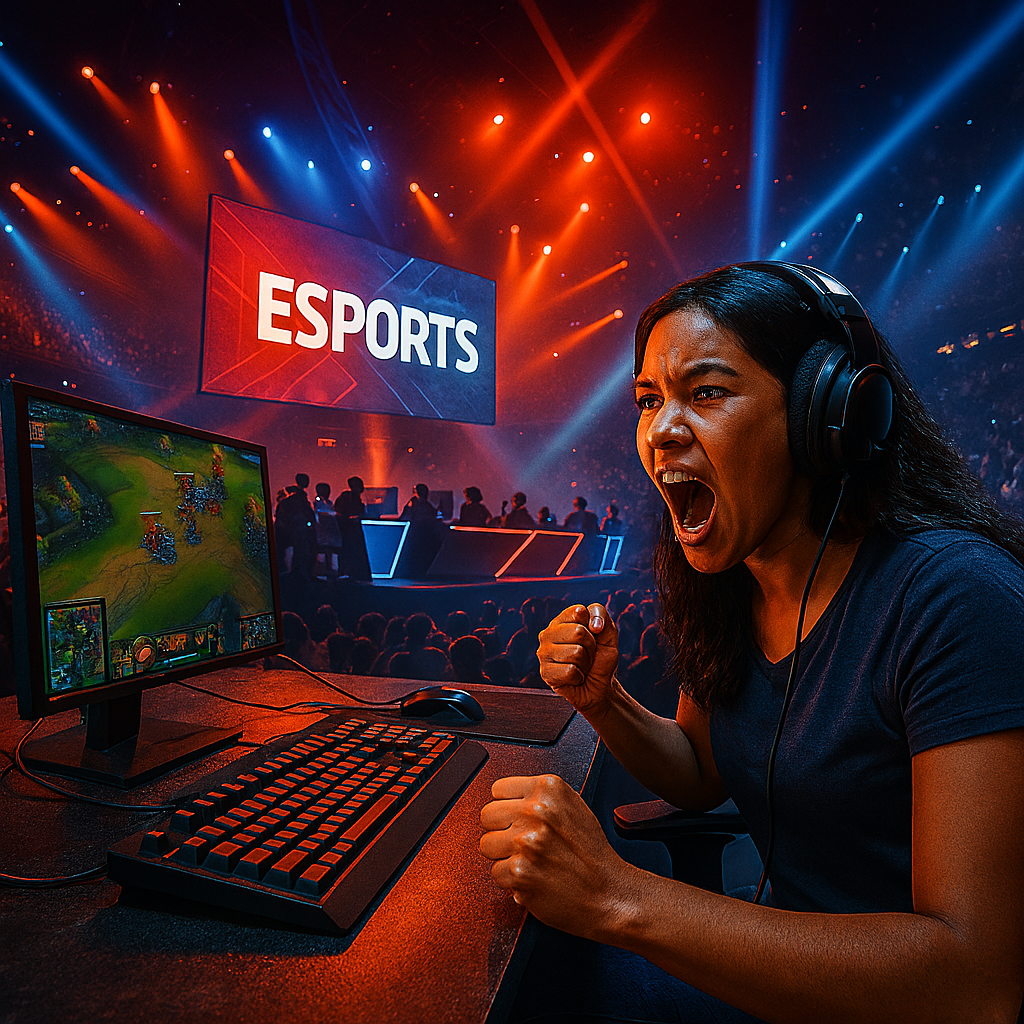
Is Esports a Real Sport
The debate often hinges on traditional definitions of “sport.” If one defines sport as requiring physical exertion and skill, then esports qualifies—albeit in a modernized form.
| Aspect | Traditional Sports | Esports |
|---|---|---|
| Skill Development | Years of training | Years of training |
| Physical Strain | Muscle fatigue, injury | RSI, eye strain, stress |
| Competition | Structured leagues | Structured leagues |
| Team Dynamics | Coaching, strategy | Coaching, strategy |
| Spectatorship | Stadiums, broadcasts | Stadiums, live streams |
Major institutions have taken notice. Universities offer scholarships for esports athletes. The Asian Games now include esports as a medal event. Even the International Olympic Committee has explored its inclusion.
Cultural Impact – A Global Movement
Esports is a global phenomenon. South Korea, China, and the U.S. lead the charge, but countries like Brazil, Sweden, and the Philippines have thriving scenes. The industry supports thousands of jobs—from shoutcasters and event organizers to developers and content creators.
Its influence extends beyond gaming. Esports shapes fashion, music, and even education. Schools are integrating game-based learning and competitive gaming clubs to engage students in new ways.
Technology and Infrastructure – Powering the Digital Arena
Behind every esports match is a sophisticated tech stack. High-performance PCs, low-latency networks, and custom-built arenas are essential. Game developers also play a critical role, balancing gameplay and releasing updates that keep the competitive scene fresh.
Streaming platforms like Twitch and YouTube Gaming have become the lifeblood of esports viewership, offering real-time interaction and global reach. Innovations in VR, AR, and AI are poised to further evolve how esports is played and consumed.
Career Paths in Esports – Beyond the Player’s Chair
Esports offers a wide array of career opportunities beyond being a pro gamer.
These include
- Coaching and team management
- Broadcasting and content creation
- Event production and logistics
- Game development and analytics
- Marketing and sponsorship coordination
As the industry matures, more structured roles and long-term career paths are emerging, making esports a viable professional ecosystem.
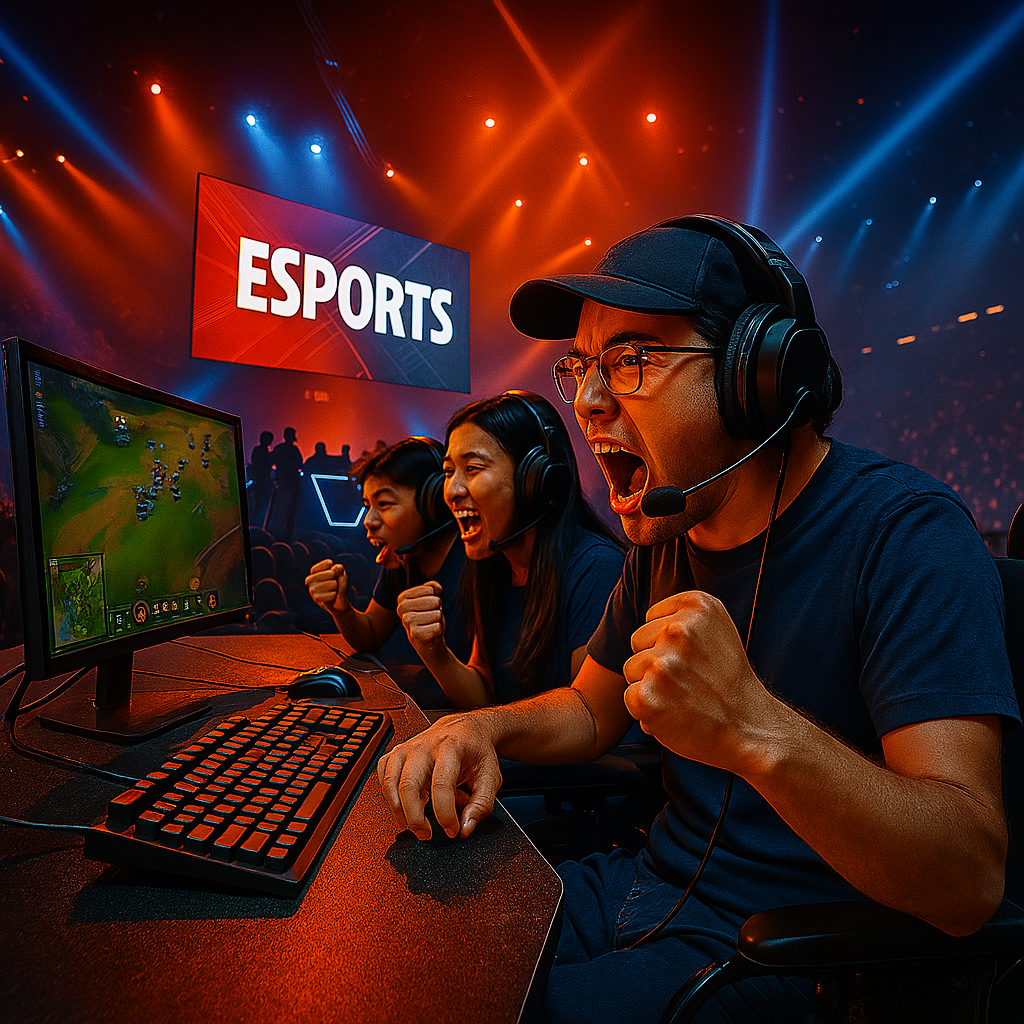
Esports and Education – A New Frontier for Learning
Educational institutions are increasingly recognizing the value of esports. Programs now exist that teach game design, team strategy, and digital media through the lens of competitive gaming. Esports clubs foster teamwork, leadership, and problem-solving—skills that translate well beyond the screen.
Some schools even use esports to engage students who might not connect with traditional extracurriculars, offering a sense of community and purpose.
Ethics and Governance – Building a Fair Competitive Landscape
With rapid growth comes the need for regulation. Issues like cheating, match-fixing, and player exploitation have prompted calls for standardized governance. Organizations such as the Esports Integrity Commission (ESIC) aim to uphold fairness and transparency.
Player contracts, tournament rules, and anti-doping measures are becoming more formalized, helping legitimize esports as a professional discipline.
The Future of Esports – Where It’s Headed
Esports is still evolving.
Emerging trends include
- Mobile esports gaining traction in developing markets
- Cross-platform play expanding accessibility
- AI-driven coaching and performance analytics
- Greater integration with mainstream media and entertainment
As technology and culture continue to converge, esports may redefine what it means to be an athlete in the digital age.
Social Dynamics – Building Communities Through Competition
Esports isn’t just about winning—it’s about belonging. Online and offline communities form around games, teams, and players, creating vibrant ecosystems of fans, creators, and collaborators. Discord servers, Reddit threads, and fan meetups foster interaction across borders and cultures.
These communities often serve as support networks, especially for younger audiences who may feel isolated or disconnected from traditional social circles. Esports offers a shared language and identity, bridging gaps between geography, age, and background.
Psychological Impact – Mental Health in the Esports Arena
The psychological demands of esports are significant. Players face intense pressure to perform, often under public scrutiny.
Common challenges include
- Burnout from overtraining
- Anxiety during high-stakes matches
- Identity struggles tied to performance and public image
Many organizations now prioritize mental health, offering access to sports psychologists and wellness programs. The conversation around mental health in esports is evolving, with increasing awareness and destigmatization helping players navigate the emotional highs and lows of competitive gaming.
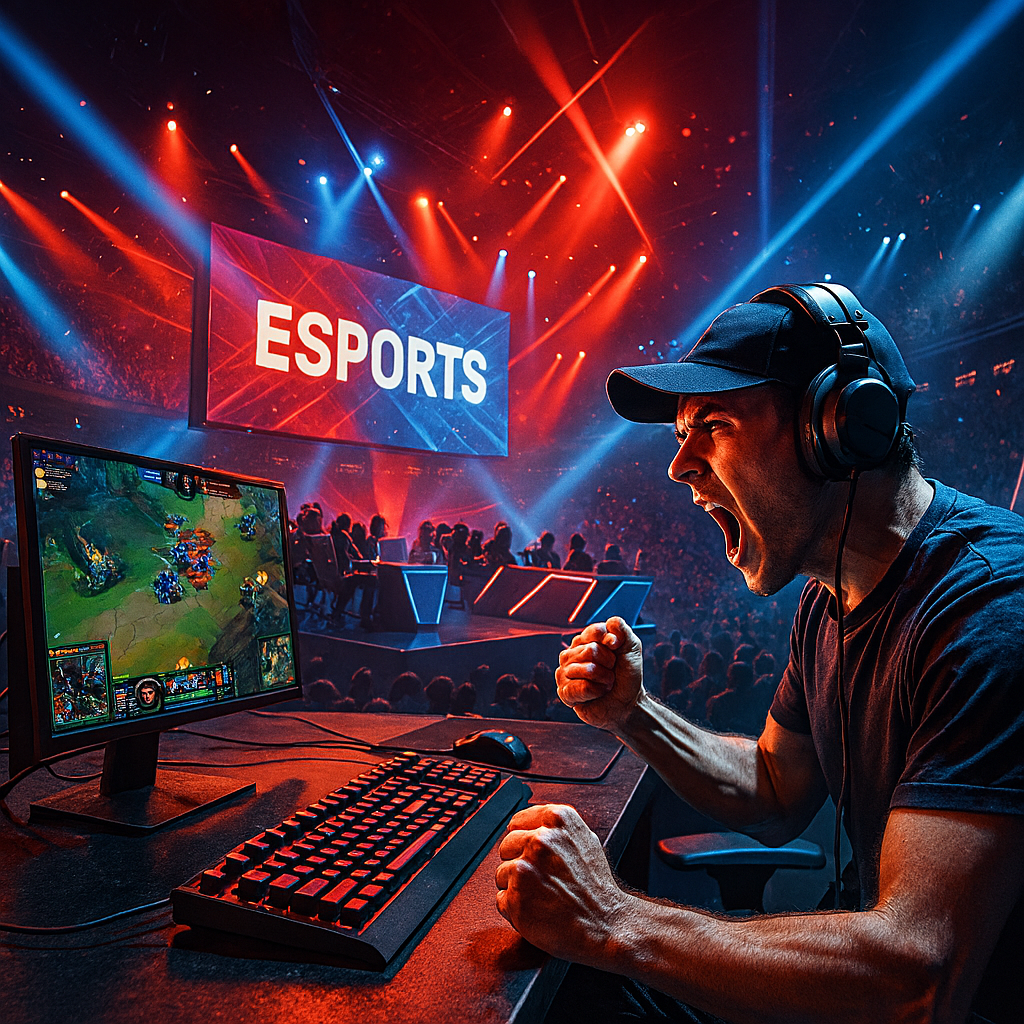
Gender Representation – Breaking Barriers in Esports
Historically, esports has been male-dominated, but that landscape is shifting. Women and nonbinary players are gaining visibility, with organizations and tournaments dedicated to inclusivity and representation.
Challenges remain, including
- Harassment and bias in online spaces
- Limited access to sponsorship and professional opportunities
- Underrepresentation in leadership and commentary roles
Initiatives like all-women leagues, mentorship programs, and inclusive game design are helping reshape the narrative. The future of esports depends on creating a space where talent thrives regardless of gender.
Economic Influence – Esports as an Industry Driver
Esports is no longer a niche hobby—it’s a multi-billion-dollar industry.
Revenue streams include
- Sponsorships and brand partnerships
- Media rights and streaming platforms
- Merchandise and in-game purchases
- Ticket sales and live events
Cities are investing in esports infrastructure, building arenas and hosting international tournaments. Job creation spans tech, media, education, and hospitality, making esports a legitimate economic force with global reach.
Narrative and Identity – The Power of Storytelling in Esports
Behind every player is a story—of perseverance, rivalry, redemption, and triumph. Esports thrives on narrative, whether it’s a rookie upsetting a veteran or a team’s comeback from near elimination. These stories fuel fan engagement and deepen emotional investment.
Content creators, documentarians, and journalists play a key role in shaping these narratives. As esports grows, storytelling will remain central to its cultural relevance, helping audiences connect not just with the games, but with the people behind them.
Final Thoughts
Esports is not just a digital pastime—it’s a legitimate, demanding, and rapidly evolving competitive discipline. Whether you’re a skeptic or a superfan, it’s impossible to ignore the skill, dedication, and global impact of this modern sport. As technology continues to blur the lines between physical and virtual arenas, esports stands as a testament to how human competition adapts and thrives in new forms.
Join the Discussion
Do you consider esports a real sport? What parallels do you see with traditional athletics? #EsportsExplained #DigitalAthletes #GamingCulture #CompetitiveGaming #FutureOfSports
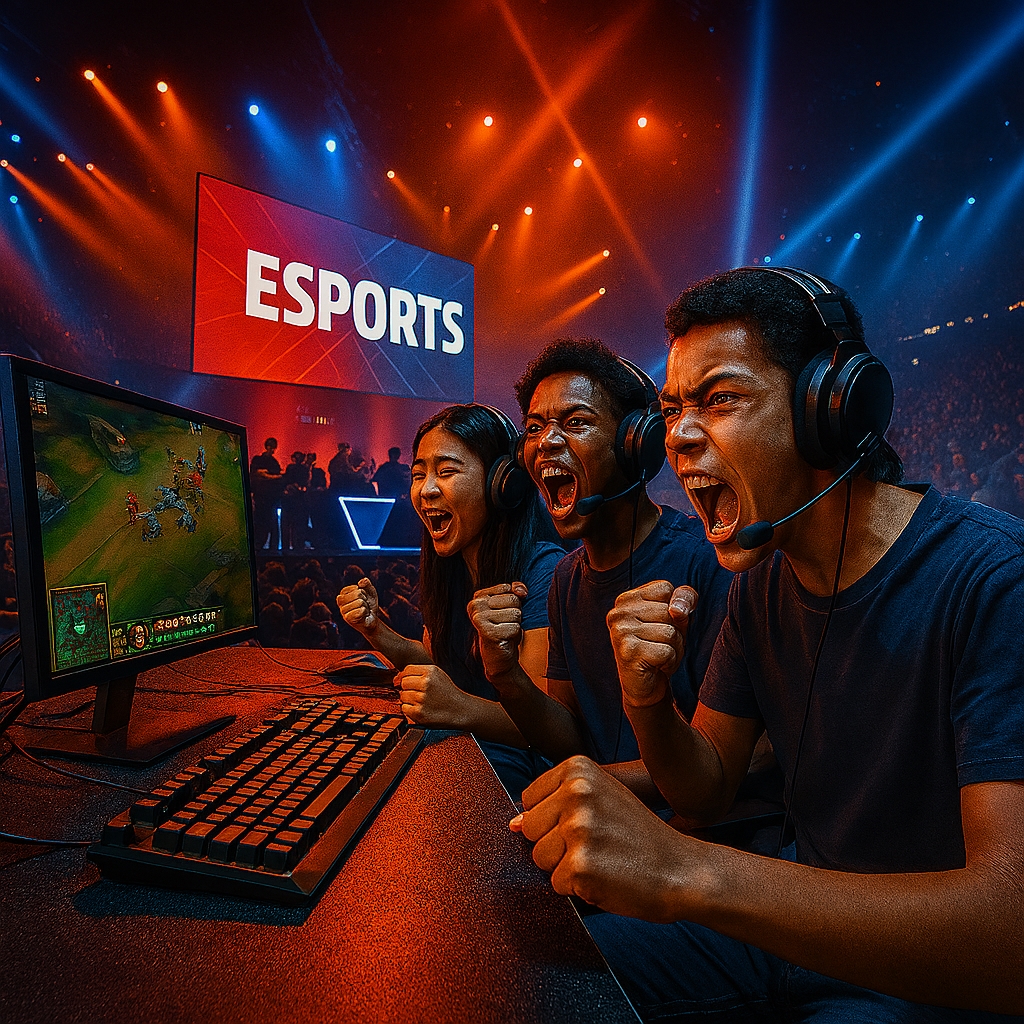


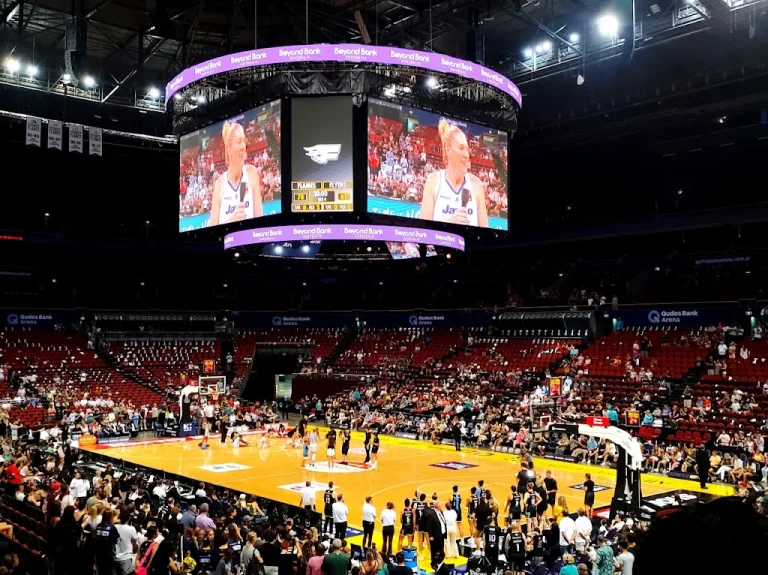

4 Comments
Comments are closed.